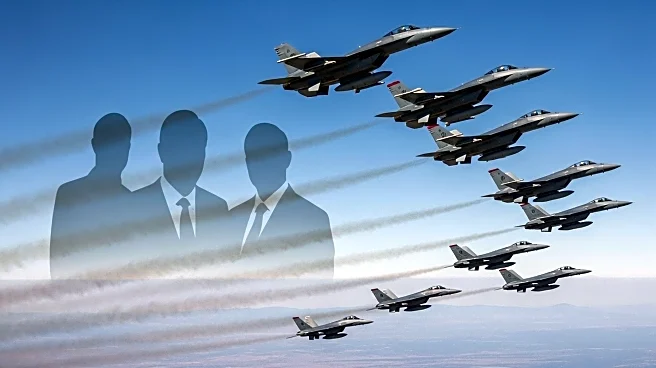What's Happening?
China marked the 80th anniversary of the end of World War II with a grand military parade in Beijing. The event was attended by Chinese President Xi Jinping and more than two dozen foreign leaders, including North Korea's Kim Jong Un and Russia's Vladimir Putin. The parade, held in Tiananmen Square, showcased China's military strength with displays of missiles, tanks, autonomous vehicles, and fighter jets. The event was heavily choreographed to demonstrate China's national pride and military capabilities, commemorating the country's victory against Japanese aggression and the global victory against fascism. The parade concluded with the release of 80,000 doves and balloons, symbolizing peace.
Why It's Important?
The parade underscores China's growing geopolitical influence and military capabilities. By hosting leaders like Putin and Kim Jong Un, China is signaling its strategic alliances and diplomatic reach, particularly in the absence of Western leaders. This event highlights China's role in shaping global military and political dynamics, potentially affecting international relations and security policies. The display of advanced military technology serves as a reminder of China's defense capabilities, which could influence regional power balances and prompt responses from other nations concerned about China's military expansion.
What's Next?
The parade may lead to increased diplomatic engagements between China and the attending nations, potentially strengthening military and economic ties. Western countries might respond by reassessing their strategies in dealing with China's growing influence. The event could also prompt discussions on global security and defense policies, as nations evaluate the implications of China's military advancements. Future military parades and diplomatic events may further showcase China's strategic priorities and alliances.
Beyond the Headlines
The parade reflects China's emphasis on historical narratives and national pride, which play a crucial role in its domestic and international policies. The event may influence cultural perceptions and national identity, reinforcing China's position as a major global power. Additionally, the absence of Western leaders highlights ongoing geopolitical tensions and differing perspectives on global security and diplomacy.











